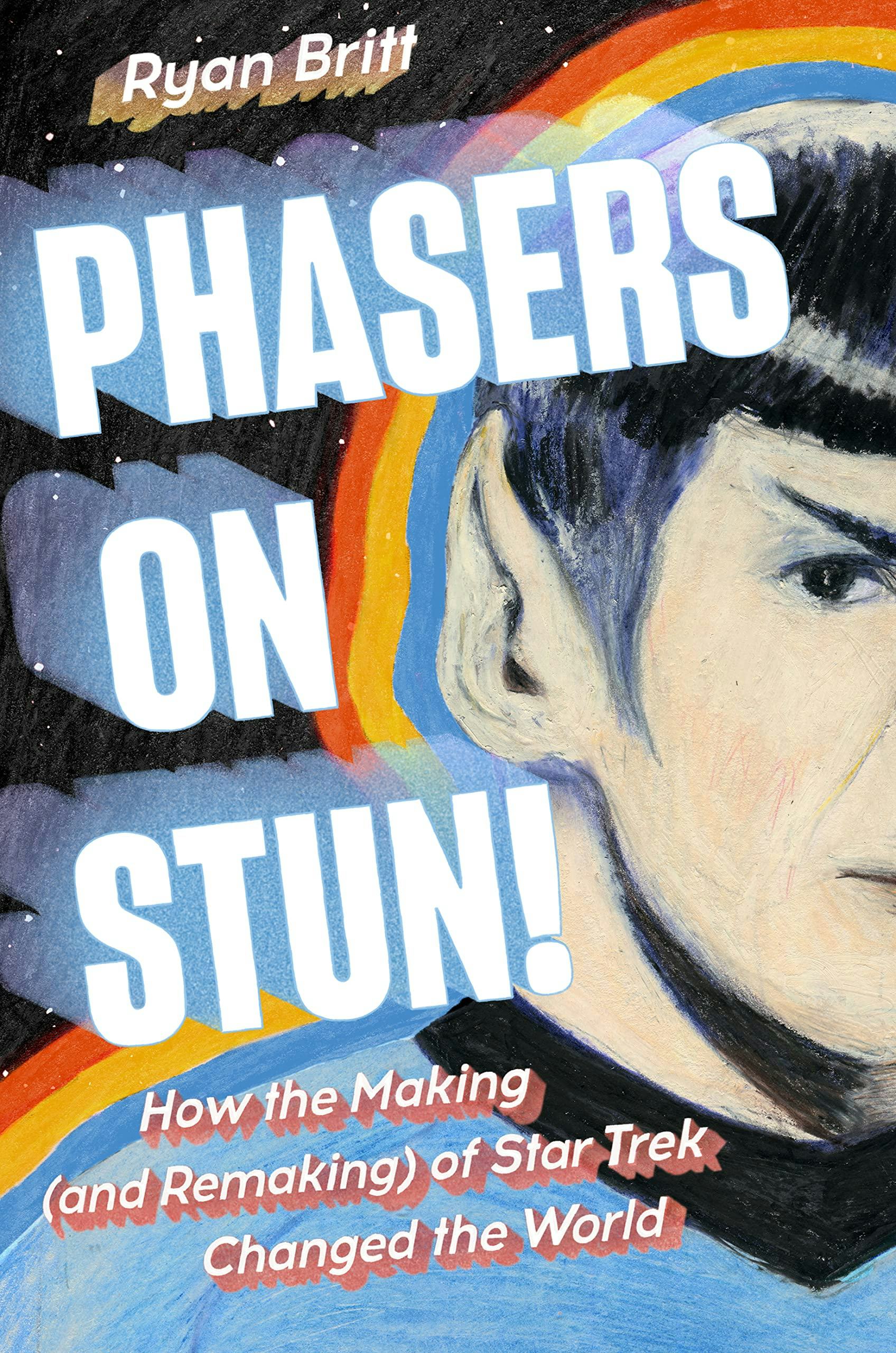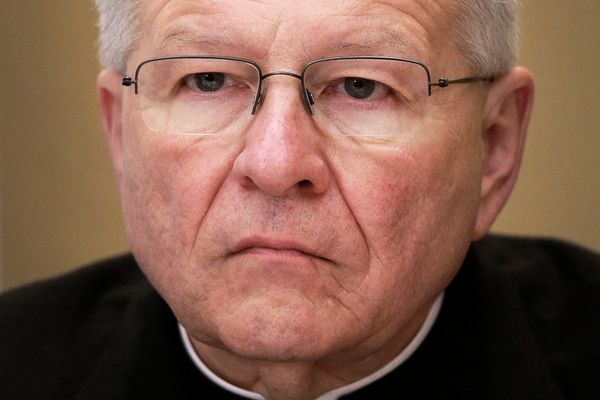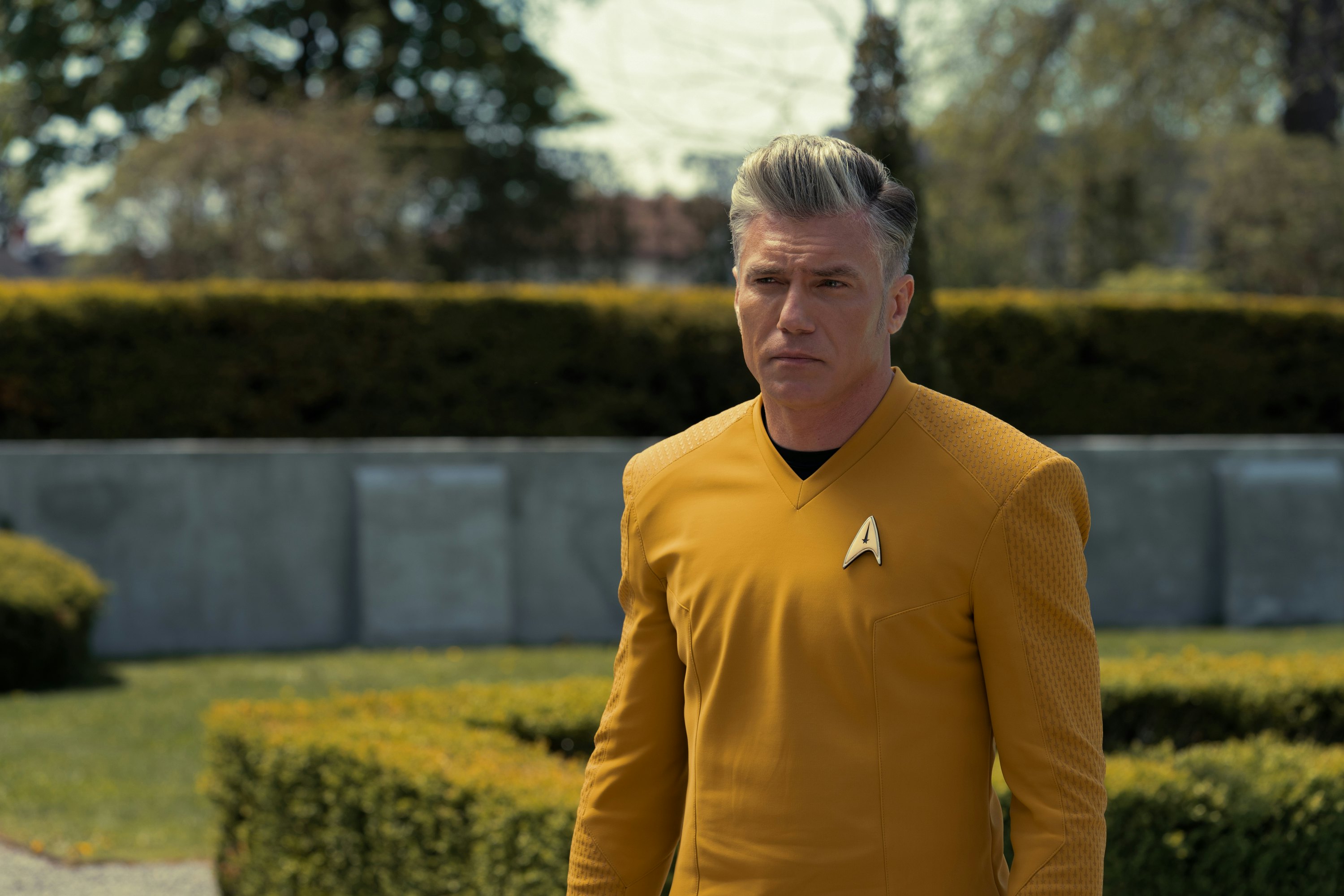
In First Contact, Captain Picard said, “You see, money doesn’t exist in the 24th century.” But what about in the 23rd century? And what about on planets that aren’t part of Star Trek’s United Federation of Planets?
In the sixth episode of Star Trek: Strange New Worlds — “Lift Us Where Suffering Cannot Reach” — we get a new wrinkle that seems to contradict certain assumptions fans might have had about the status quo of the Federation. Inverse got in touch with the co-writer of the episode, Bill Wolkoff to unpack it all.
Throughout the Trek franchise, we’ve seen all sorts of examples of capitalism existing alongside, or in opposition to, the pseudo-socialist utopian economy of the Federation. In the famous Original Series episode “The Trouble With Tribbles,” a Federation trader named Cyrano Jones is selling furry little tribbles. In Deep Space Nine, Quark and the Ferengi are huge capitalists, using money constantly.
So Captain Picard is a little bit wrong. Money does exist in the 23rd, 24th, and 32nd centuries of the Star Trek future. It’s just that the Federation doesn’t subsist on a capitalist economy. Or does it?
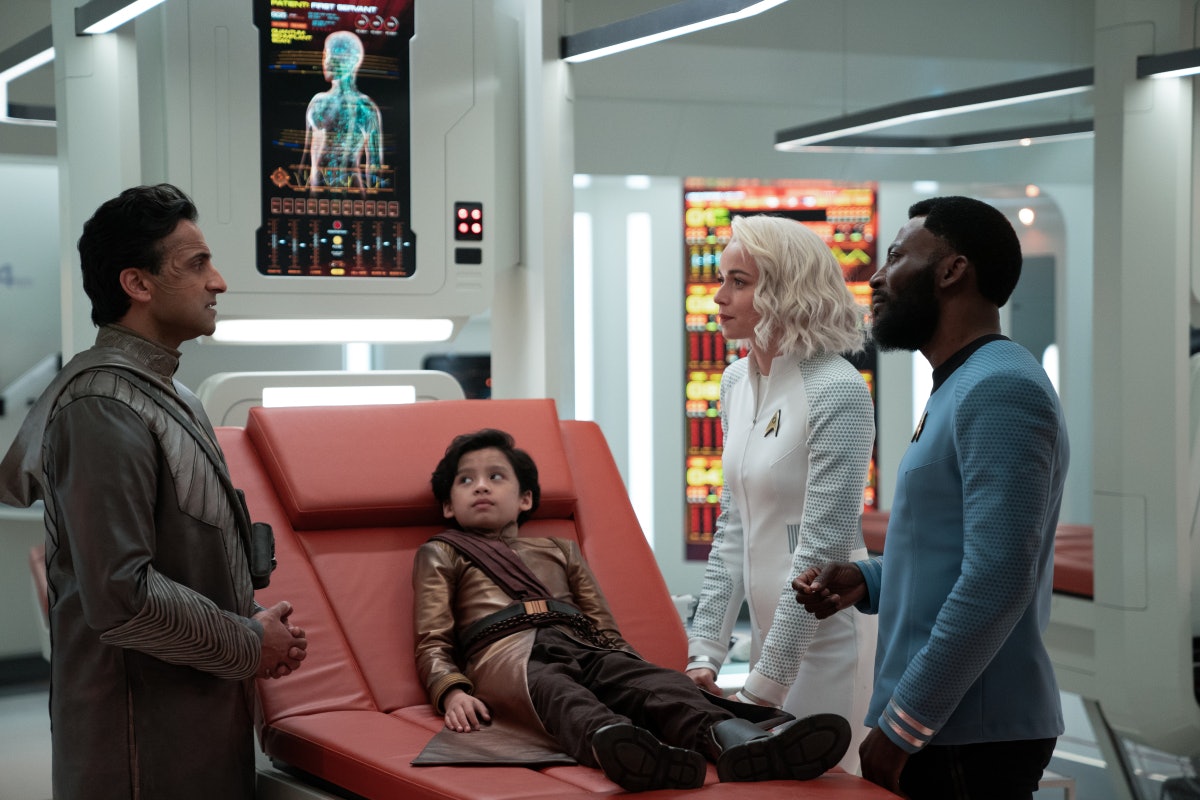
In the denouement of “Lift Us Where Suffering Cannot Reach,” Captain Pike is faced with a harsh truth. In the non-Federation Majalan star system, a child called “The First Servant” is essentially tormented by a machine so that the rest of the society to enjoy a plentiful existence. Naturally, Pike is horrified. How could a culture trade the life of one child for the benefit of countless other people? But Alora, a high-ranking representative of Majalis, throws this back at him, saying that this kind of horrific calculus exists in the Federation, too.
“Can you honestly say that no child suffers for the benefit of your Federation?” Alora says. “That no child lives in poverty or squalor, while those who live in abundance look away?”
Obviously, the point of the episode is hauntingly allegorical. In the real world, children suffer all the time, while others often look away. But under the utopian status quo of Star Trek’s Federation, how is there poverty at all?
“Star Trek canon has established that most Federation worlds are post-scarcity and not focused on the accumulation of wealth,” SNW writer Bill Wolkoff tells Inverse. “But is every Federation world perfect in this way? Has all hunger and poverty been eliminated? I don’t think we know that for certain. We’ve seen Federation colonies and worlds in need of supplies and resources. And I don’t think it’s an enormous stretch to imagine certain Federation member worlds straying from the ideals they’re supposed to uphold.”
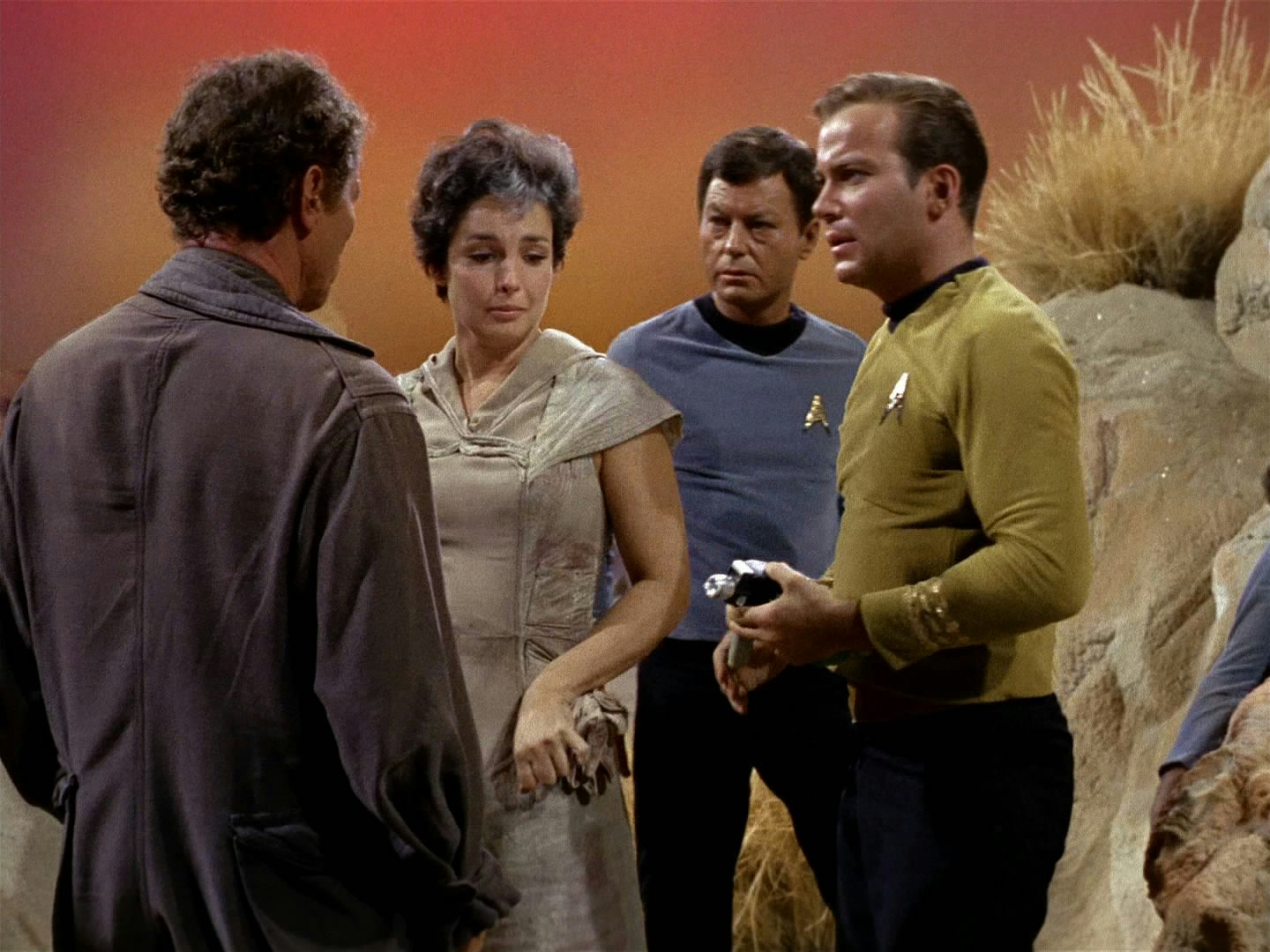
This point is well taken. In the very first Star Trek episode ever aired, “The Man Trap,” (set in 2266) the Enterprise is checking in on a far-flung outpost to bring supplies.
“I’d imagine there are also plenty of non-Federation worlds suffering from hunger and poverty that Starfleet also must deal with,” Wolkoff says.
Speaking to Wil Wheaton on the Strange New Worlds aftershow The Ready Room, Star Trek producer Alex Kurtzman presented a more philosophical take on all of this.
“One of the great lessons of Star Trek is that you must always look under the surface,” he says. “Because what you think isn’t always what it is.”
“Is every Federation world perfect?”
Wheaton’s own analysis here is that Alora wasn’t just alluding to the current Federation, but also that the Federation comes from “21st century America,” which would mean the entire society of future Trek is still “built on the backs of suffering children.”
The ending of “Lift Us Where Suffering Cannot Reach” is a gut punch. Pike can’t legally do anything about the suffering of the First Servant, because this isn’t a Federation planet. Instead, he and the audience are forced to contemplate the suffering he could prevent elsewhere but doesn’t. For Wolkoff, this episode examines the ideals of Starfleet but reminds us those ideals don’t exist without doing a lot of work.
“While Starfleet is an inherently good institution we can aspire to, its members still face many of the issues we still deal with,” he says. “Whenever there’s money, even in a mostly post-scarcity future, there will be some who are without.”
Star Trek: Strange New Worlds is streaming now on Paramount+
